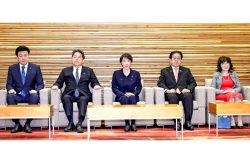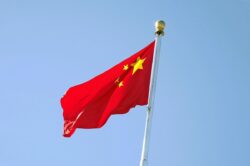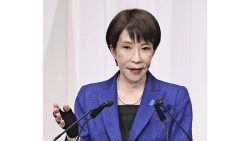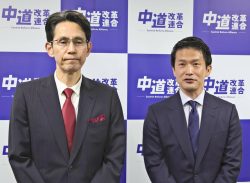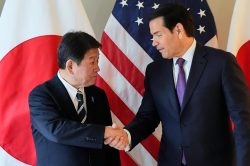Into a ‘Battlefield’: Embassy Rescued Japanese Nationals Amid Sound of Gunfire during Tiananmen Square Incident
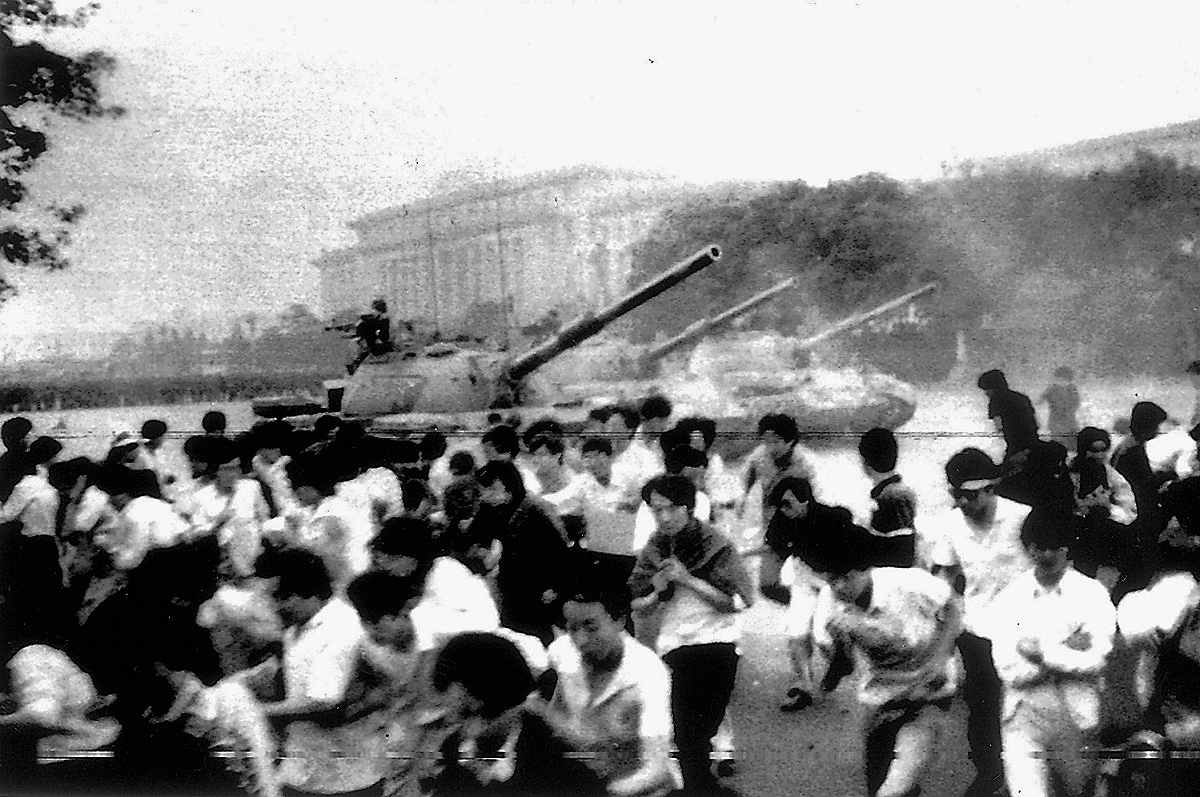
A crowd flees in panic as tanks barge into Tiananmen Square to begin firing on June 4, 1989.
15:20 JST, December 28, 2020
Staff at the Japanese Embassy in Beijing evacuated Japanese nationals during the Tiananmen Square incident in June 1989 amid the sound of gunfire, according to diplomatic documents opened Wednesday by the Foreign Ministry.
The documents, which reveal details of the rescue operations carried out by the embassy, include a report by an embassy worker depicting a tense atmosphere. The report reads, “I felt as if we were sending colleagues off to a battlefield,” referring to the embassy workers who were assigned to take Japanese nationals by bus to Beijing Capital International Airport.
One of the documents, dated June 13, 1989, and sent by the embassy to the ministry, was titled “Evacuation activities for Japanese nationals conducted by the embassy.” According to the document, in early hours of June 4 — when the Tiananmen Square incident occurred — public transportation such as buses and subways had completely stopped. The embassy was flooded with pleas for help from Japanese people who were unable to get to the international airport. In related incidents, the residence for embassy workers was shot at, and a Japanese photographer was hit in the leg by a bullet and taken to hospital.
The next day, the embassy started shuttling buses with embassy workers on board to pick up Japanese nationals waiting to be rescued at universities and other places, to transport them to the airport or to stay at hotels temporarily.
The documents also show that the embassy spent one hour persuading a Chinese driver to drive one of the buses after he refused.
For the six-day period until June 10, the embassy provided 109 bus services to evacuate 1,494 people.
On June 7, a local company office was surrounded by the military and a Japanese national stranded there asked the embassy for rescue. With the sound of gunfire in the background, two embassy workers went to the office on foot out of concern that vehicles may be shot at. The embassy workers asked the military directly to end the siege. About two hours later, the siege was lifted, allowing the person to escape safely.
At Beijing Capital International Airport, embassy staff in charge of issuing passports gave temporary travel documents to those who were unable to bring their passports amid chaos. People who did not have cash with them were also allowed to embark after submitting a written acknowledgement of debt to airline companies.
According to a report compiled by the ministry, nearly 4,000 Japanese nationals returned home safely amid the mayhem, albeit with two injured.
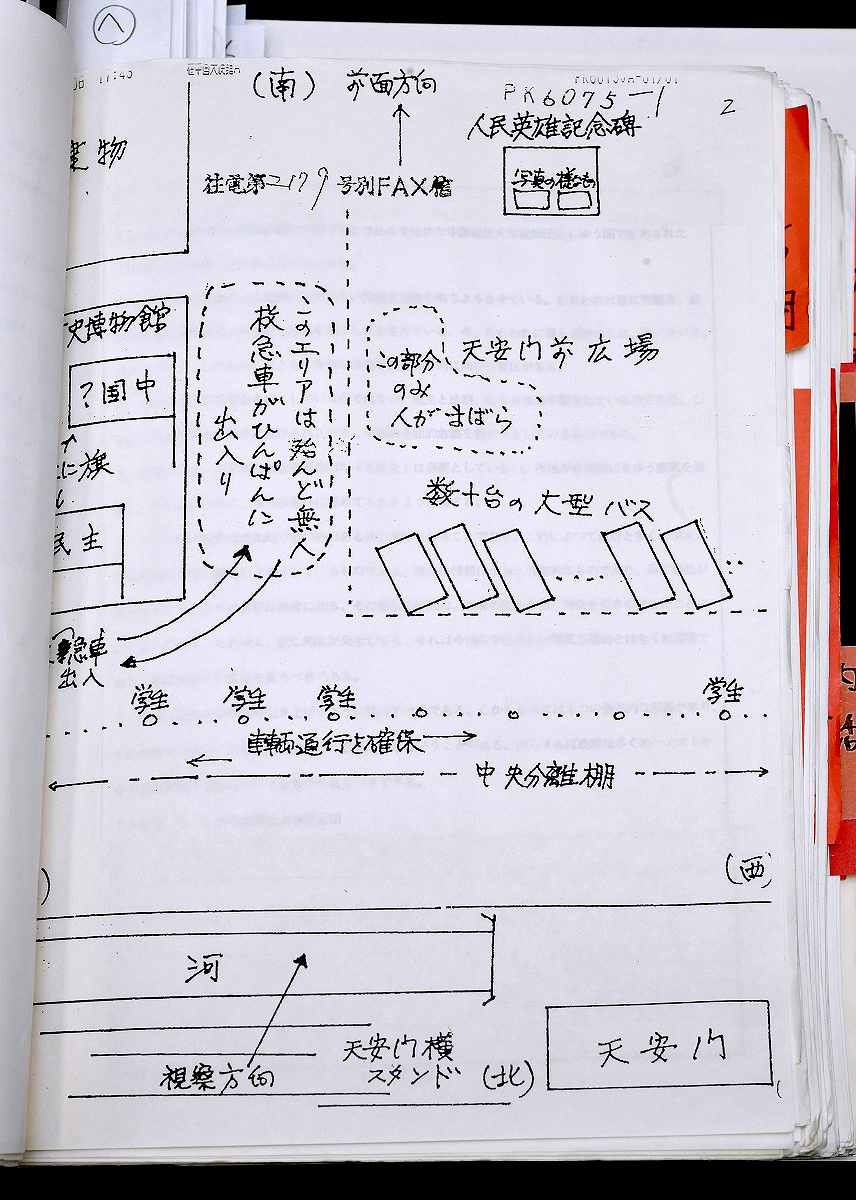
A schematic drawing of Tiananmen Square
■ China expected bloodshed
It is believed that the Chinese leadership had prepared for the armed suppression of student rallies before the incident occurred.
According to diplomatic documents, on May 20, 1989, former Chinese President Li Xiannian told Kaheita Okazaki, then permanent advisor to the Japan-China Economic Association, that a bloody situation must be avoided, but also that bloodshed would be inevitable if certain conditions transpired.
On Nov. 13 that year, Deng Xiaoping told a delegation of the association visiting China that patriotic education had not been sufficiently provided and the turmoil was caused by a confused ideology. Deng also said that students, especially young adults, must be reeducated.
Top Articles in Politics
-

LDP Wins Historic Landslide Victory
-

LDP Wins Landslide Victory, Secures Single-party Majority; Ruling Coalition with JIP Poised to Secure Over 300 seats (UPDATE 1)
-

Japan Tourism Agency Calls for Strengthening Measures Against Overtourism
-

CRA Leadership Election Will Center on Party Rebuilding; Lower House Defeat Leaves Divisions among Former CDPJ, Komeito Members
-

Voters Using AI to Choose Candidates in Japan’s Upcoming General Election; ChatGPT, Other AI Services Found Providing Incorrect Information
JN ACCESS RANKING
-

Japan Institute to Use Domestic Commercial Optical Lattice Clock to Set Japan Standard Time
-

Israeli Ambassador to Japan Speaks about Japan’s Role in the Reconstruction of Gaza
-

Man Infected with Measles May Have Come in Contact with Many People in Tokyo, Went to Store, Restaurant Around When Symptoms Emerged
-

Prudential Life Insurance Plans to Fully Compensate for Damages Caused by Fraudulent Actions Without Waiting for Third-Party Committee Review
-

Woman with Measles Visited Hospital in Tokyo Multiple Times Before Being Diagnosed with Disease


